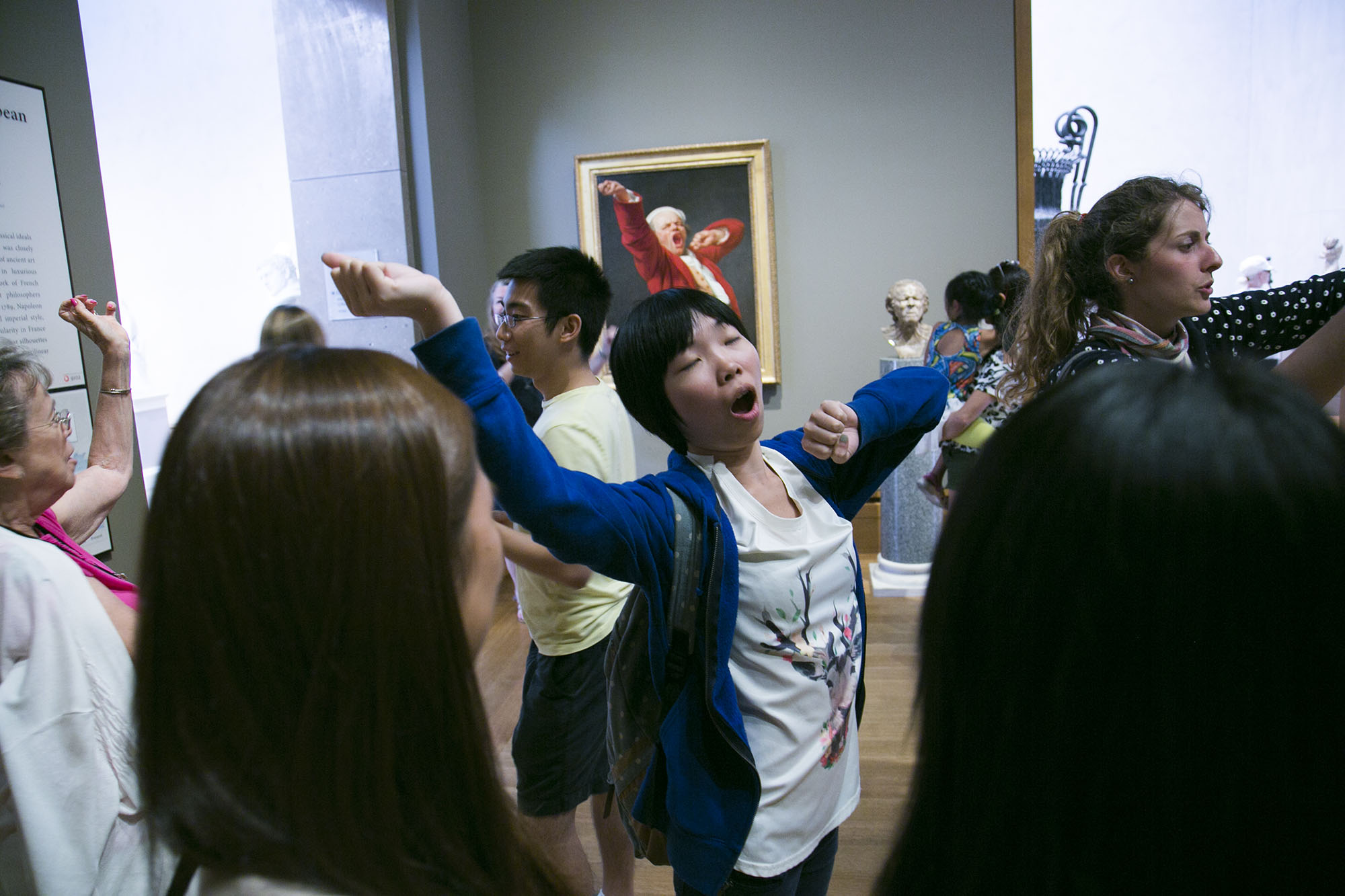Get Moving at the Getty!
Art for the Whole Body
The J. Paul Getty Museum is getting
people moving! If you have ever been to an art museum the normal way of viewing
art work is by strolling through the galleries, but for some people they need a
little bit more than a stroll through Rembrandt's work or more than a few
glances at a Roman sculpture. The staff at the Getty are trying to switch up
how their visitors are viewing the art work there, so they have started their
new Move! tours that are offered
every Thursday. Move! tours let
visitors have the option of connecting to artwork through movement and feeling.
On these tours visitors participate together in imitating figures that are
portrayed in paintings and sculptures.
The staff at the Getty museum is
exploring questions that involve the combination of art and our senses such as
what do art objects ask us to do? Can art objects ask us to respond physically?
Which of our senses do we privilege or not privilege in the gallery? 



The Getty offers a new way of
interpreting artwork through a more personal understanding. The normal visitor
would usually participate in the conventional “museum body language” by walking
slowly then stare at a piece of art for about 17 seconds, maybe read or listen
to some of the description and then move on to the next piece. Now visitors can
interact with the art by imitating what is going on with the pieces, by doing
this they can get a better understanding of not only the piece of art itself
but the artist too. This is a way for visitors to connect to history by
imitating images of historical figures therefore getting an idea of what those
figures may have physically felt. Move! also
includes imitating furniture too! This interpretation also makes the visit to
the museum more memorable and can help visitors remember specific aspects about
specific pieces of art that they encountered.
This tour is 45 minutes and
includes movement for all ages and ability levels. This kind of tour is also
great for people with disabilities. For example visitors who have vision
problems or who are blind can get an idea of how a painting or sculpture looks
by having someone help them to imitate what is going on in the artwork. I think
the Getty has come up with a great way to make exhibits interesting and
memorable in a way that anyone can participate in!

No comments:
Post a Comment